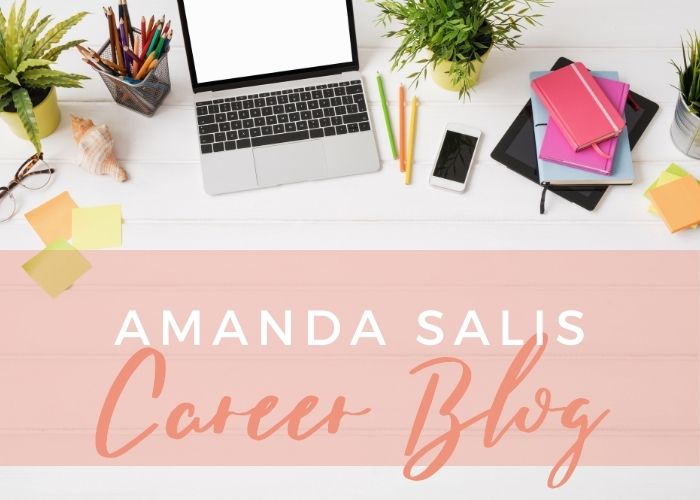
Meet Prof Amanda Salis, NHMRC-funded Professor of Obesity Research at the University of Western Australia. Here she talks about the importance of writing and family, and upcoming training opportunities for ECRs at the Salis Institute

What is your current role and how did you get to be there?
IMy current role is Professor of Obesity Research at the University of Western Australia, funded by a Senior Research Fellowship from the National Health and Medical Research Council of Australia. I am also the Chief Research Officer of the Salis Institute, an organisation I founded in January 2019 with my partner, Zübe Salis, to train the research stars of tomorrow. My formal qualifications are a Bachelor of Science with Honours from the University of Western Australia, and a PhD from the University of Geneva, Switzerland. I think that one of the most important things that helped me to get where I am now is that I have authored a steadily growing list of published research papers. Indeed, research fellowships and positions are predominantly judged by research track record, and published papers are a major part of that.
How does your work contribute to the field and/or the overall health and wellbeing of the community?
My research in obesity aims to find safe and more effective ways for adults to attain and maintain a healthy body weight and body composition throughout life. I have especially focused on different dietary methods for weight loss, from softly-softly approaches such as eating according to hunger and satisfaction signals, to severe approaches, such as total meal replacement diets. Implementing research into practice, Zübe and I recently launched a weight loss app in the app store (Wink by Amanda Salis), and we will announce it soon.
My work in the Salis Institute aims to help new and emerging researchers to become independent, by providing inspiration and training in research skills such as writing research papers, writing applications for research funding, using systems to accelerate research outputs, speaking about research in ways that captivate diverse audiences, and networking for introverts.
Tell us more about your upcoming paper-writing bootcamp, and why this is an important skill for researchers to develop efficiently?
In November I will be running a bootcamp to help researchers write a paper in 3 weeks (Write your paper in 3 weeks). In a series of six live Zooms on consecutive Tuesdays and Fridays, I will walk participants through a step-by-step process designed to help them write their research paper in 3 weeks, culminating in a complete and professionally structured draft of their paper ready for feedback from co-authors. During the bootcamp, I will be giving written feedback to participants on three key aspects of their emerging paper as they write it (the take-home message, the introduction outline, and the title with abstract), to help ensure they are on the right track with implementation of the ideas covered in the bootcamp. As researchers, we always hear that we must ‘publish or perish’ (or ‘publish and flourish’, as I prefer to say). In this bootcamp, I will be teaching paper-writing strategies that help researchers to not only write a complete and compelling draft of their paper, but to also learn how to write future papers in a time-efficient way. In feedback about this training, I repeatedly hear people say that they wished they had done this training earlier in their research careers
What are your loves outside of work?
My loves outside of work are my family – Zübe and our two children, who are both teenagers. So many people warned us that raising children through the teen years can be more difficult than raising children through the baby days, but I thought ‘how hard can it be?’ Now I know! I am constantly learning and growing with Zübe as we go through all the fabulous and sometimes fearful stages of parenting together. In terms of hobbies, I must admit that I have a secret love of doing laundry. From when I was a student in Geneva, living in student housing with no family around, to living back in Australia (Sydney or Perth) and navigating the uncertainties of a research career and parenting, the laundry has been my steady companion. I love that I can have total control over my laundry! And it is so satisfying to have a cupboard full of clean clothes to wear.
What is one piece of advice you could pass onto others following their own career in the health and medical research sector?
My motto has always been ‘learn something, pass it on, then learn something new’. I have a yearning to keep learning! So whenever I learned how to do something to a high standard, I would teach someone else to do it, and this would free up some of my time to focus on learning new things. Earlier in my career, this involved setting up standard operating procedures for many of the routine tasks I did, so that when someone offered to help me in my research, I was able to easily explain to them what needed to be done, and how to do it to a high standard. In 2010, I started developing a standard operating procedure for writing a research paper – based on linguistic research by Dr Margaret Cargill – and started passing it on to more junior researchers around me at work, and my publication output increased from a median of 6 papers per year to a median of 10 papers per year. With the time this has saved me in helping others in my team to write research papers, I have been able to focus on learning new things – like launching a weight loss app and launching the Salis Institute.
